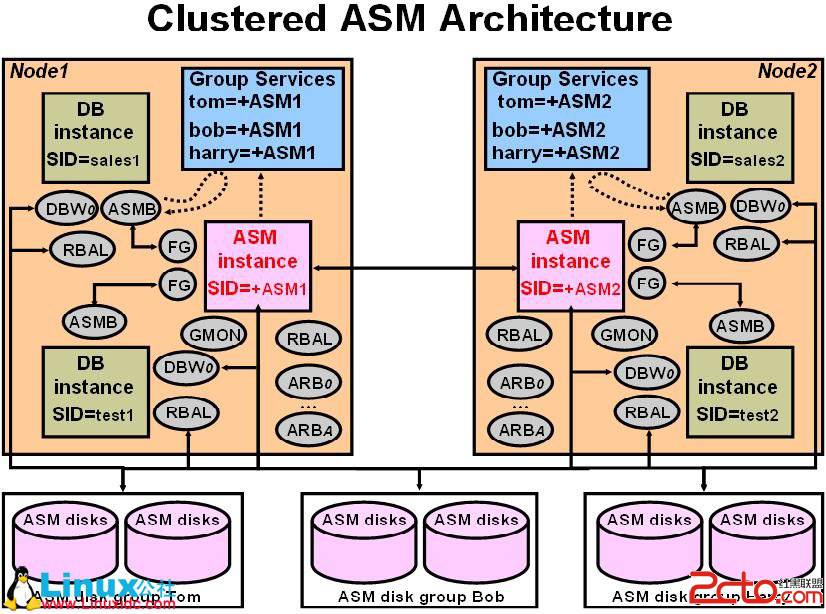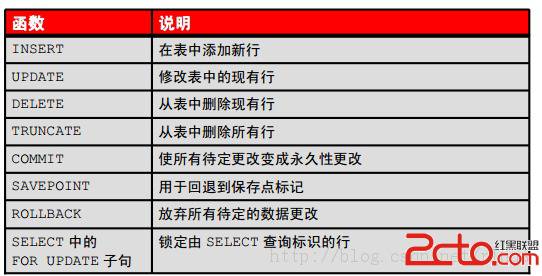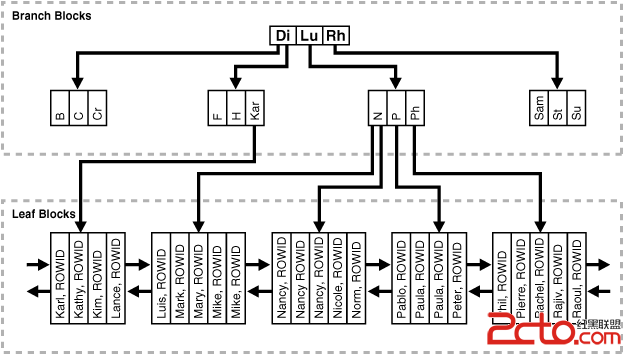答案:
Result Sets from Stored Procedures In Oracle
A frequently asked question is:
I'd like to know whether ORACLE supports procedures (functions) which
returns result sets.
The answer is most definitely yes. In short, it'll look like this:
create or replace function sp_ListEmp return types.cursortype
as
l_cursor types.cursorType;
begin
open l_cursor for select ename, empno from emp order by ename;
return l_cursor;
end;
/
With 7.2 on up of the database you have cursor variables. Cursor variables are cursors opened by a pl/sql routine and fetched from by another application or pl/sql routine (in 7.3 pl/sql routines can fetch from cursor variables as well as open them). The cursor variables are opened with the privelegs of the owner of the procedure and behave just like they were completely contained within the pl/sql routine. It uses the inputs to decide what database it will run a query on.
Here is an example:
create or replace package types
as
type cursorType is ref cursor;
end;
/ create or replace function sp_ListEmp return types.cursortype
as
l_cursor types.cursorType;
begin
open l_cursor for select ename, empno from emp order by ename; return l_cursor;
end;
/
examples for SQLPlus, Pro*C, Java/JDBC, ODBC, ADO/ASP, DBI Perl and OCI follow:
REM SQL*Plus commands to use a cursor variable variable c refcursor
exec :c := sp_ListEmp
print c
and the Pro*C to use this would look like:
static void process()
{
EXEC SQL BEGIN DECLARE SECTION;
SQL_CURSOR my_cursor;
VARCHAR ename[40];
int empno;
EXEC SQL END DECLARE SECTION; EXEC SQL WHENEVER SQLERROR DO sqlerror_hard(); EXEC SQL ALLOCATE :my_cursor; EXEC SQL EXECUTE BEGIN
:my_cursor := sp_listEmp;
END; END-EXEC; for( ;; )
{
EXEC SQL WHENEVER NOTFOUND DO break;
EXEC SQL FETCH :my_cursor INTO :ename, empno; printf( "'%.*s', %d\n", ename.len, ename.arr, empno );
}
EXEC SQL CLOSE :my_cursor;
}
And the java to use this could be:
import java.sql.*;
import java.io.*;
import oracle.jdbc.driver.*;
class curvar
{
public static void main (String args [])
throws SQLException, ClassNotFoundException
{
String driver_class = "oracle.jdbc.driver.OracleDriver";
String connect_string = "jdbc:oracle:thin:@slackdog:1521:oracle8"; String query = "begin :1 := sp_listEmp; end;";
Connection conn; Class.forName(driver_class);
conn = DriverManager.getConnection(connect_string, "scott", "tiger"); CallableStatement cstmt = conn.prepareCall(query);
cstmt.registerOutParameter(1,OracleTypes.CURSOR);
cstmt.execute();
ResultSet rset = (ResultSet)cstmt.getObject(1); while (rset.next ())
System.out.println( rset.getString (1) );
cstmt.close();
}
}
The following is thanks to marktoml@hotmail.com (mark tomlinson)..
If you use ODBC here is a working example, but it requires the use of the
8.0.5.2.0 or later Oracle ODBC driver, and an 8.0.5 server.
'
' 1) Create a form with 1 Text control (Text1) and 1 List Control (List1) and
' 1 Button (btnExecute).
' 2) The only code that you need is a Click method on your button. Here is the Code.
'
'
Private Sub btnExecute_Click()
'PL/SQL Code
'===========
'
'CREATE OR REPLACE package reftest as
' cursor c1 is select ename from emp;
' type empCur is ref cursor return c1%ROWTYPE;
' Procedure GetEmpData(en in varchar2,EmpCursor in out empCur);
'END;
'
'
'CREATE OR REPLACE package body reftest as
' Procedure GetEmpData
'(en in varchar2,EmpCursor in out empCur) is
'begin
' open EmpCursor for select ename from emp where ename LIKE en;
'end;
'end;
'
Dim cn As New rdoConnection
Dim qd As rdoQuery
Dim rs As rdoResultset
Dim cl As rdoColumn
Static Number As Integer List1.Clear
Number = 0
cn.Connect = "uid=scott; pwd=tiger; DSN=MSLANGORL;"
'enable the MS Cursor library
cn.CursorDriver = rdUseOdbc
'Make the connection
cn.EstablishConnection rdNoDriverPrompt sSQL = "{call RefTest.GetEmpData(?,?)}" Set qd = cn.CreateQuery("", sSQL) qd.rdoParameters(0).Type = rdTypeVARCHAR
qd(0).Direction = rdParamInputOutput
qd(0).Value = Text1.Text
qd.rdoParameters(1).Type = rdTypeVARCHAR 'Dynamic or Keyset is meaningless here
Set rs = qd.OpenResultset(rdOpenStatic) Do
Debug.Print
Debug.Print Do Until rs.EOF
For Each cl In rs.rdoColumns
If IsNull(cl.Value) Then
List1.AddItem "(null)"
' Debug.Print " "; cl.Name; "NULL"; Error trap for
null fields
Else
List1.AddItem cl.Value
' Debug.Print " "; cl.Name; " "; cl.Value;
End If
Next
Debug.Print
rs.MoveNext
Loop
Loop While rs.MoreResults
cn.Close End Sub
And now, for a full ASP
上一个:Borland C++ Builder 5 企业版使用BDE访问 Oracle方法
下一个:Oracle8i基于规则的优化机制对表达式的处理
- 更多Oracle疑问解答:
- 运行exp备份oracle数据库提示oracle-12154错误
- 有没有,生产Oracle Rman 备份脚本的工具啊!
- 初学orcle,希望有大大帮忙解说一下详细步骤,从登录oracle到创建表的过程
- oracle语句问题:一张user表,三个字段,id,name,time,插入记录比如:张三2007,李四2008,张三2011
- 如何写一个ORACLE触发器同步两个表中的数据?
- oracle 如何查看一个服务器上有多少个数据库.
- oracle 创建包的时候错误 求解
- oracle 重复列的问题
- oracle 中如何查处2星期前的数据
- 请教oracle数据库安装中的问题
- 请问谁能提供给我标准的oracle ERP的数据库表结构并详细说明各表主要的作用?
- 安装oracle遇到的问题 invalid entry CRC (expected 0x3e12e795 but got 0x9db0e9fd)
- 我的是ORACLE 10G,在RMAN中如何按指定的时间恢复数据文件啊?
- oracle为什么没有自动增长列
- oracle快捷键都有哪些啊?





